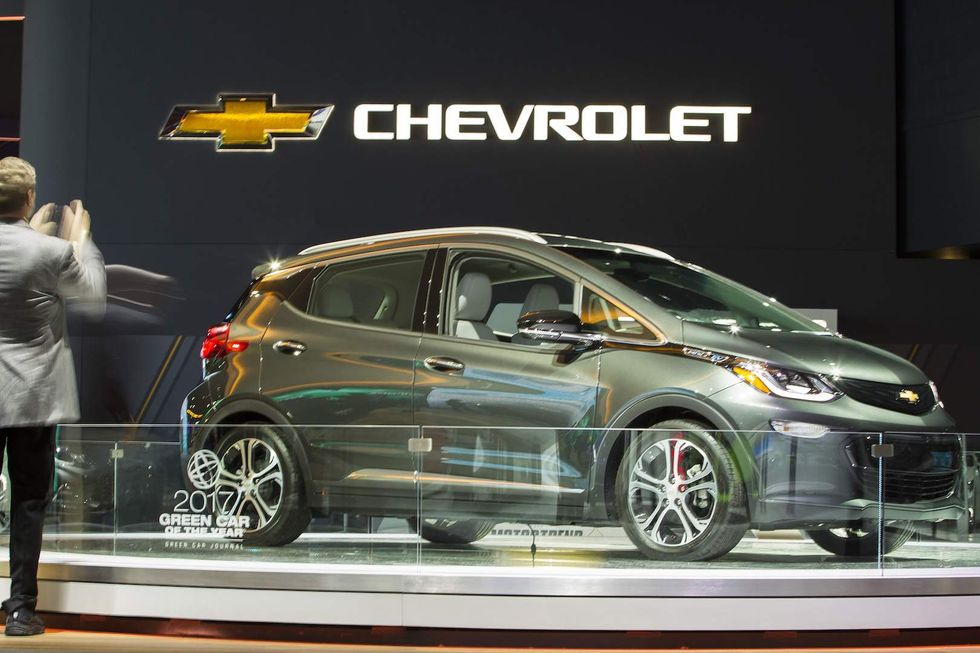
A man takes a photo of the Chevrolet Bolt at the 2017 North American International Auto Show in Detroit, Michigan, January 10, 2017. (Geoff Robins/AFP/Getty Images)

General Motors believes in an "all-electric" future for vehicles; a future in which the company ceases to produce gas and diesel automobiles. And that future could exist in the next decade.
Mark Reuss, GM's chief of global product development, talked about the company's new course at a media event in Michigan on Monday.
“General Motors believes in an all-electric future,” Reuss said. “Although that future won’t happen overnight, GM is committed to driving increased usage and acceptance of electric vehicles.
"General Motors will move humanity forward in the future with all-electric propulsion," Reuss said. "Because General Motors believes the future is all electric, these aren’t just words in a war of press releases. We are far along in our plan to lead the way to that future world."
Reuss said the company is too big for them to pinpoint a date when gas and diesel vehicles will no longer be produced, according to USA Today. But GM plans to have introduced 20 new electric models between now and 2023.
Global regulations. As laws and regulations around the world put pressure on automakers to reduce fuel emissions, Auto companies are being forced to embrace electric vehicles. China, Britain and France all have plans to eventually ban gas-powered vehicles.
Competition. If GM doesn't join the electric car push, it risks being left behind by Tesla, which is leading the way in electric car innovation, and other companies such as Ford, Nissan and Volvo that are working toward more electric options.
Electric vehicles are expensive. Chevrolet's first electric vehicle, the Bolt, costs about $37,500, for example, and that's a small vehicle. At the same time, it's difficult for companies to turn a profit on electric cars. Tesla, for example, has spent billions of dollars on its vehicles but has not profited overall.
Mileage can be an issue. The 2017 Bolt as a 240-mile range on a single charge, and competitor vehicles offer less than that, such as the Tesla Model 3 (220 miles) and the Nissan Leaf (107 miles). Compare that to small and mid-size gas vehicles that can travel upwards of 400 miles on a single tank of gas.
What people are used to. It will take time to get the masses on board with electric vehicles, when currently very few people own them. Last year, electric car sales accounted for just one percent of total sales in the U.S.
What might happen to the oil market. It's not exactly clear how much oil demand could be displaced by a dramatic increase in electric vehicles over the next 10 years. Whenever electric car sales take off, it will likely cause an oil glut that will disrupt the market.